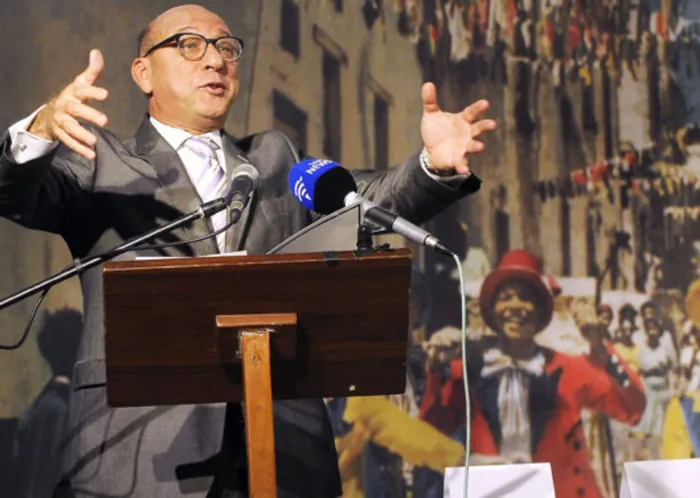Manuel sets chamber big challenge

Cape Town-131107-Minister Trevor Manuel addressed the Cape Chamber of Commerce and Industry at the Homecoming Centre in Buitekant Street Cape Town-Reporter-Kieran Legg-Photographer-Tracey Adams Cape Town-131107-Minister Trevor Manuel addressed the Cape Chamber of Commerce and Industry at the Homecoming Centre in Buitekant Street Cape Town-Reporter-Kieran Legg-Photographer-Tracey Adams
Cape Town - As the Cape Chamber of Commerce and Industry prepares for its 210th birthday, it has been set a formidable challenge by Trevor Manuel.
The planning minister said 11 million jobs needed to be created in South Africa by 2030, and as the “voice of Cape Town’s businesses” the chamber would play an important role in turning this into a reality.
Manuel set the challenge as part of his speech at the organisation’s general meeting at the District Six Museum.
While he lauded the chamber’s efforts over past year, he said there was major room for improvement.
“We should be at a stage where a venue like this would be too small (for the number of businesses in Cape Town),” said the minister. He was not satisfied by the country, or the Cape’s, current economic growth.
His words will follow the chamber into a new era. The organisation is undergoing dramatic changes, moving to a new building and converting from an association to a non-profit organisation.
At the helm is newly elected president Janine Myburgh, a Cape Town attorney who takes over from Fred Jacobs, a director of the AP Moller-Maersk shipping group.
It will be her third tenure as president, previously leading the organisation in 2006 and 2007.
Minutes after Jacobs had passed on the symbolic presidential medallion, Myburgh tackled Manuel’s speech with fighting words – although by that time the minister had left.
She agreed that more jobs needed to be created, but said businesses were held back by the shackles of “needless” red tape.
Myburgh said
Black Economic Empowerment had failed, distributing wealth to a minority while most still lived in poverty.
And, she said, increases to the minimum wage had inadvertently crippled small businesses and sparked retrenchment in the agricultural sector. - The Argus